Father Victor Boldewskul was born in 1968 in Rochester, NY. From the age of 13, he started to visit Holy Trinity Monastery as “a summer boy.” In 1986 he enrolled in Holy Trinity Seminary and graduated in 1991 with Bachelor in Theology (Cum Laude). In 1993 Victor received M.A. in history from Ohio State University. In June of 1999 Archbishop Alypy of Chicago and Mid-West ordained him a deacon and on Pokrov of the same year, Archbishop Lavr of Syracuse and Holy Trinity Monastery ordained him a priest. Fr .Victor served in a mission n Columbus, OH from 1999 to 2001. Then from 2001 to 2005 in St. Sergius parish in Cleveland, OH. In 2005 by appointment of Metropolitan Lavr Fr. Victor became Deputy Rector of Holy Epiphany Church (The only parish in the greater Boston area that uses Church-Slavonic as a liturgical language). Since January of 2007 Fr. Victor has been Rector of that parish.
Father Victor, you knew Vladyka Lavr from your very young age and you used to come as a summer boy to Jordanville. Then you worked in the printshop, which was a very special place for Vladyka, and so on. Can you share with us something about Vladyka Lavr that you would like to share?
Well, first of all, I think many have already written and said a lot. Vladyka Lavr, was, as many have noted, a person who was simultaneously both a faithful monk and bishop. When I remember Vladyka Lavr, what I remember the most important was how he truly loved the Church, how he loved the Russian Church, and how he was always measured in all things. You know, we perceive things one way when we’re young and then, when we reflect on them as we get older, we begin to understand more. Vladyka taught by example or by his short words or comments (short meaning concise: he didn’t have to say too much to guide us). You can begin to understand more when you’re in your forties … I am now at the age that Vladyka Lavr was when I first knew him. And what I realize now is how patient he was. Vladyka was so, so patient and understanding of people’s weaknesses. If he saw someone with a good desire, he guided so that that desire would develop. And he was patient with adolescents and young adults as they went through various temptations as an encouraging and loving father. When we get older, we can understand – oh! this is why he wouldn’t react so quickly at this question, or this is why Vladyka was patient towards those people. We begin to see our own sins and then we understand why Vladyka was so merciful – very merciful, especially if a person was striving to do good and to be helpful to the Church.
Secondly, I realize now that if you want to do anything good in the Church, you don’t need a program: you don’t need to be an activist or anything like that. It is important to do the small things well, then God really takes care of the rest. Again, when we’re young, we have energy and often we want to be noted; other times we want to change the world and we think we know what needs to be done reacting on the questions of the day. OK, then we realize nothing significant has changed. So we understand that we need take it more slowly. If we take care of the little things, I believe God takes care of the rest.
And you are kind of answering this along the line of my question of Vladyka Lavr, so I assume that you are saying that that was kind of Vladyka Lavr’s philosophy perhaps?
I don’t have the right to say what Vladyka Lavr’s philosophy was. I can say how I understand it; how it applies to me.
But we are still talking about Vladyka Lavr?
Right, so everything I’ve stated is what I believe –upon reflection – I learned from Vladyka, or have come to understand what I have learned from him. I don’t know Vladyka’s philosophy. What I learned from him is the love of the Church, the love of the Russian Church, the love of Russian traditions. Vladyka would very much encourage people to go on pilgrimages to the Holy Land, to Greece, to Mount Athos. He very much encouraged the veneration of relics of saints: wherever you go for whatever reason, if there is a relic of an Orthodox saint make sure you stop and visit to venerate. Also, find an Orthodox church for services for all major feast days. This was also something that I learned from Vladyka.
Thank you very much Father Victor. And I am not sure, from what you have said, if it leaves any room for my second question. I personally was thinking that we had an All-Diaspora Council that dealt with the issue of reconciliation, and now, when we are in the new reality… When the Soviet Union was, there was the very clear mission statement of the Russian Church Abroad: help to deliver Christ’s message to Russia, help to preserve tradition. You yourself worked day and night in the print shop. Now there are all books printed in Russia. We are now full members of the family of Orthodox Churches. What is the message now that is on the wall? What is the new reality calling to us? Is there anything that also we need to talk, to discuss or something that you consider as an issue of importance right now?
Well, there’s a lot there in that question and I would take a nuanced approach at some of your comments. So, I wouldn’t say that the purpose of the Russian Church Abroad was to only print books for Russia. First and foremost it was and is to take care of the flock, take care of the parishioners She has: that’s first and foremost. That has never changed and should never change. Our parishioners and parishes are very ‘dynamic’. It’s a word that’s used in secular terms, which I don’t like, but we are very diverse – real diversity – in the sense of background and experiences, and we must take care of all of our parishioners. Many of our parishioners have ties to Russia and countries from the former Soviet Union while others to the West and to the countries that they find themselves in. In Boston for example, a good percentage of my parishioners may return home or go back to Moscow or to Russia in the summer. Some may go back, for example, to visit their daughters while others still feel the necessity to plant their gardens at their dachas, and then they come back here. Students from Russia come here as well and others from here go to Russia. So my point is that in many of our parishes there is a lot of movement and activity. We need to offer spiritual care to all. That is enough to keep all of us busy.
Students from Ukraine?
Ukraine, Belarus. Other former republics. Don’t forget Russia is such a huge country. The east is different than Moscow. St Petersburg is different from a village outside of Vladivostok, etc. And we have parishioners from all these places. We have parishioners that continually come from all over– some stay in one parish for three years and their jobs send them somewhere else. Again I want to emphasize that we must minister to all those people along with those born in the West and that is one of the many reasons why, of course, the issue of reconciliation was so important to resolve ten years ago. Yes, you can look at it from a canonical point of view. You can look at it as well from the mission statement of the Church Abroad, all good reasons in themselves that necessitated the need for a union, but also the reality that our parishes are more fluid than they were before for the reasons we discussed. We do live in a global society that is interconnected, and people’s jobs require them to move. This is why the fact that the issue of the unification of the Russian Church is done with, is over, is a relief because the unification facilitates the mission of the Church in pastoral and spiritual care.
Some people would never go to our churches as well.
Most people would go back and forth between Moscow Patriarchate parishes and parishes of the Russian Church Abroad, so I am not sure how many would never go to our parishes. But this separation had to be resolved either way. So, with this resolved, it is much easier today to do pastoral work. Unification happened by God’s Grace and, of course, Vladyka Lavr’s desire to fulfil God’s will. It was on his watch that this happened and through his leadership, and if we look at how he did it, and how he didn’t do it. Again we can learn so much. This train of thought is connected to how we started our discussion. Much has been said and written about Vladyka’s approach to unification by people much closer to the process, for example by now Bishop Tikhon (Shevkunov), Fr Nikolai Artemoff, Fr Serafim Gan, Fr Victor Lochmatow, Bishop Nicholas of Manhattan, all could say more about how Vladyka handled the process of unification as issues came up. Reflection on this today, I must admit that in my immaturity, in my short-sightedness, I was one of those who said, “Why doesn’t Vladyka do more? Why isn’t he pushing it? Why is it taking so long?” Vladyka knew how to do it because Vladyka was a man from the Church and this was an ecclesiastical question, a spiritual question and a pastoral question. Vladyka was guided by the Grace he acquired through his nonstop monastic podvig.
That’s exactly, Father. When I am in Russia, I hear that people treat Vladyka Lavr as somebody who sort of had this idea fix all his life, but I am saying that Vladyka was a man of the Church: he was just obedient, and he felt that this time came to do it. It’s not like he really had this on his mind.
[In agreement] No, no. I gave an interview for a Russian newspaper once. I never, from my perspective , I know that other people know it better , I never saw, felt any hint that he thought that this was his mission; quite the opposite. My sense was that he would have preferred just to support someone else in this endeavour. But he just saw that it was time, Christ had placed him as First Hierarch of the Russian Church Abroad, and the process he took was a Church process, and he heard out people from all sides. Truth be told I feel guilty that maybe I was pushing one side too much. It’s nice when your side turns out to be the winning side, I must admit, but now I am a bit embarrassed. Unification happened not because anyone pushed it through. No, it happened because of the prayers of Vladyka and our other elder hierarchs. God’s will was done. And this is what Vladyka would tell people when they made threats of schism at that time: unification is God’s Will. When people were screaming at him, “How could you do this?” “Well, it’s God’s Will.” When we look at the fallen spiritual state of the world we find ourselves today, I think it would be much harder for us to live Orthodox lives if we weren’t in full communion within the Russian Church.Yes. that’s a good addition to the Vladyka Lavr question… Thank you. Thank you, Father Victor, for your edifying words and thank you for granting this interview.
My pleasure.
Conducted by Deacon Andrei Psarev
Photo: Holy Epiphany Parish School

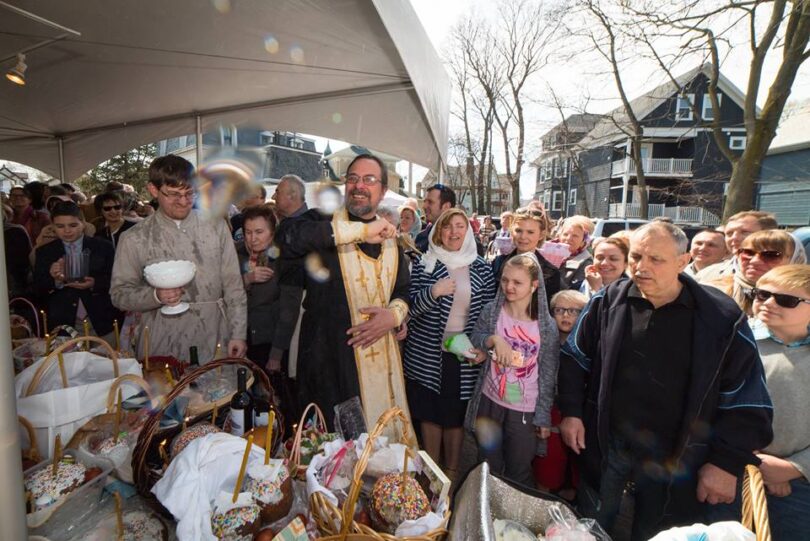





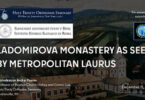
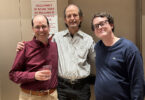
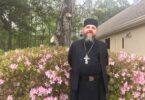
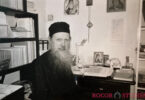
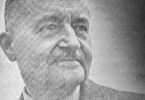
[…] ROCOR Studies – Archpriest Victor Boldewskul – September 2017 […]